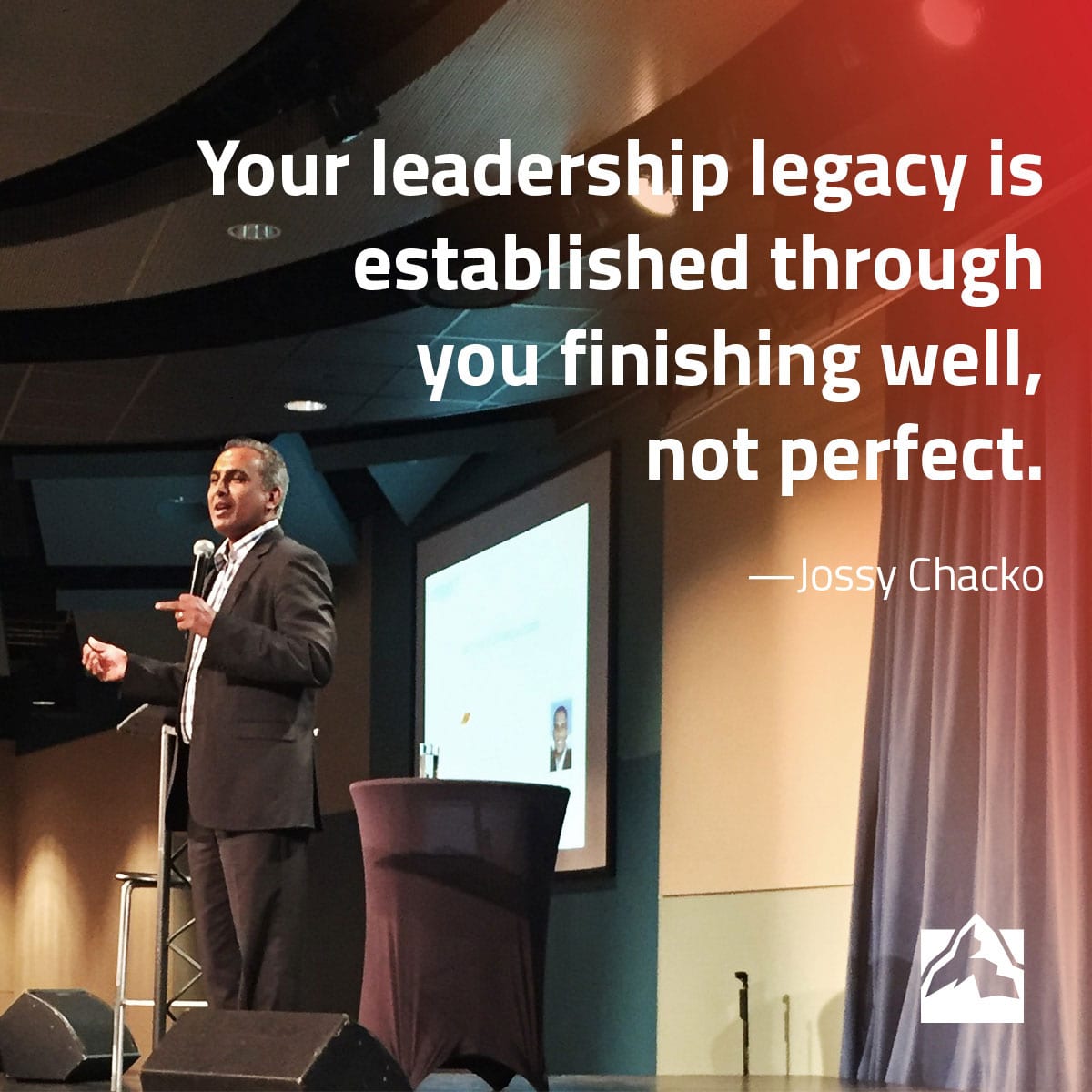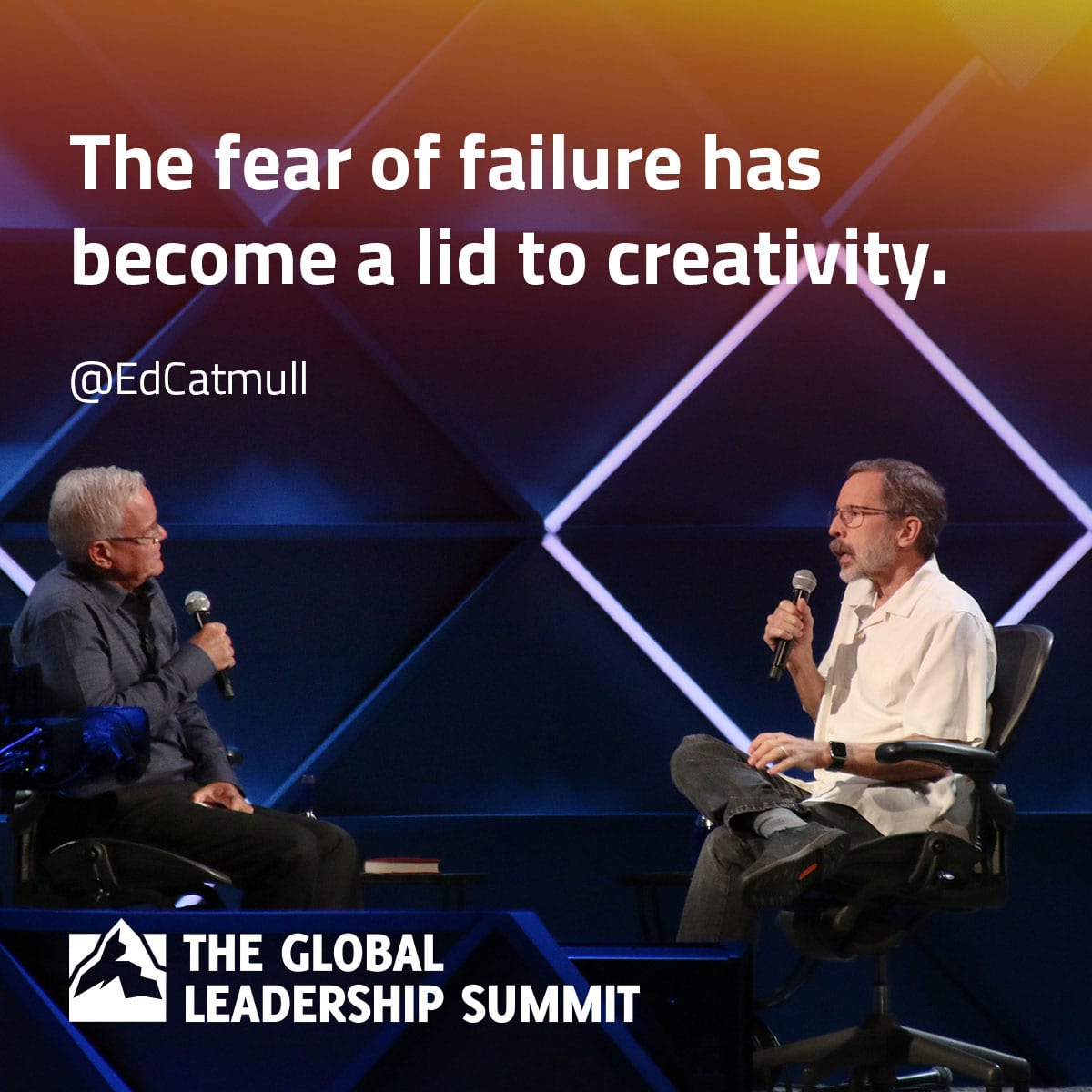
People won’t tell you how they feel until they believe you want to know.

People won’t tell you how they feel until they believe you want to know.

Expect God to do great things through your life.

The year was 1969.
Fresh out of college and newly married to my long-time love, Margaret, I stepped into the sanctuary of my first church, in Hillham, Indiana. To say Hillham was small would be an understatement; when Margaret and I first moved there, the town consisted of eleven houses, two garages, and one grocery store. Even today, it is still small in many ways—for example, its Wikipedia page is only four sentences long!
Despite its size, however, Hillham was a place of massive opportunity for Margaret and me. It was my first church, my first real taste of leadership, and my first opportunity to pursue the dreams I had for my life. It was also the first real challenge I faced—my first Sunday sermon was delivered to an audience of two, and Margaret was one of them!
Though the church was small, my dreams were huge. The people of the church were more than happy to let me chase those dreams, but due to size and budget restrictions, it was up to me to do the chasing! I was young, I was determined, and I set out to succeed with nothing more than a little willpower and a lot of confidence.
There are many leaders who face similar circumstances to the ones I faced in Hillham: small organization and few resources, but big dreams and goals. Being a one-man show isn’t ideal, but it can teach you a lot of great leadership lessons. In fact, many of the lessons I learned in Hillham became foundational not only for my future leadership positions but for the lessons I teach in my books and from the stage.
Here are five lessons I learned as a one-man show:
Hillham was a small community, but I had unlimited opportunity before me. Every door needed to be knocked on, every name needed to be learned, every day presented a first for me and my career. Because of this, I was able to wake up each day excited for what lay ahead of me. Nothing gives more energy to the one-man show than potential. The key is disciplining yourself to look for it in every situation.
One of my first successes came in Hillham. Because so many people were struggling with finances, I decided that teaching them principles for managing their money would be a tremendous way to add value to them. I went looking for resources to purchase to help me, but none existed—so Margaret and I just made our own. We researched, wrote, designed, and printed the materials we would need to help people learn to manage their money. And it worked so well that other churches came asking for the materials!
It’s often easy to say, “Well, no one has ever done that before” and give up. But when you tap into your imagination, you can find your way around any problem—and possibly help other people find their way around it too!
Most of us recognize that even a one-man show needs to begin specializing. When I first came to the church, everything was new, and I was an amateur in all of it. So I just worked hard and tried to grow. But I soon discovered that there were areas where I seemed to be growing quickly, like communication, and others where I grew much more slowly, such as administration. I worked at both, but I never became a great administrator. Over time, however, my communication got better and better, and the church began to thrive.
The natural tendency is to spend most of our energy in those areas where we struggle the most, reasoning that if we invest there, we’ll see the most improvement. Here’s what Hillham taught me: The reverse is actually true: when we spend our time focusing on what we do best (or have the potential to do best), we go a lot farther in that area.
It’s tempting to believe success comes in the form of a “home run,” especially when you’re working alone. You can become convinced that you are one big this, or one lucky that, away from really breaking out. The truth is your breakout will come from the small changes you make day after day.
Consistent work to improve your routine, your disciplines and your knowledge accumulates over time and produces the big this or the “luck” that you need. When you learn to do the small things each day, you’ll experience what historian Thomas Fuller once said: “Care and diligence bring luck.”
It doesn’t matter how much of a one-man show you are, you’re never really alone. Everyone has people who support and help them on their way, and I was no different. Hillham originally offered me a part-time salary and gave me permission to seek other employment so I could support Margaret and myself.
Margaret wouldn’t stand for it. She told the church that she would go out and get extra jobs so I could devote my time and energy to my work. And she did – in fact, she worked three of them to help us stay afloat during that time. I was able to grow and succeed in that church in large part because Margaret believed and invested in me.
It’s been a long time since Hillham, but these five lessons have been foundational for me and my career. If you’re currently in a season where you’re a one-man (or one-woman) show, take heart—there are plenty of great things you’re learning that will help you in the future.

Humility generates new knowledge and abilities.

After growing up at Willow Creek, Shauna Niequist has become an accomplished author and one of the church’s most beloved guest teachers. Her books are always insightful and beautifully written. Her latest work, Present Over Perfect, will release on August 9, 2016. Here’s a sneak peak:
Busyness is an illness of the spirit.
—Eugene Peterson
I come from a long line of hard workers—sheet metal workers, farmers, people for whom work is an estimable thing, something to respect and be grateful for. I got my first summer job when I was eleven. I rode my bike two miles to the windsurfer shop down by the marina in South Haven, and while the owner and his friends—all in their twenties—slept off hangovers and ran out to the beach at a moment’s notice if the wind piped up, I decorated the shop’s window displays and rearranged the stickers and sunglasses.
And I went to one of those high schools where much was expected of us—AP classes and academic scholarships to good colleges, high test scores, loads of extracurriculars rounding out our applications. While I was in high school, I was also volunteering several days a week and a few nights at my church, too—devoted to the high school ministry, teaching Sunday school to grade school kids. And I worked at the Gap, and at Boloney’s, a much-loved deli near my high school.
In college, I was all over the map spiritually and couldn’t be bothered to attend chapel or church, but I took a full class load every semester, worked in the library, and worked at a summer camp that kept me running from morning till night, quite literally.
All that to say, I’ve been working all my life. Work has been a through line, one that I’m very thankful for, one that has taught me so much about the benefits of structure, discipline, skill, communication and responsibility.
But at some point, good clean work became something else: an impossible standard to meet, a frantic way of living, a practice of ignoring my body and my spirit in order to prove myself as the hardest of hard workers.
As I unravel the many things that brought me to this crisis point, one is undeniably my own belief that hard work can solve anything, that pushing through is always the right thing, that rest and slowness are for weak people, not for high-capacity people like me.
Oh, the things I did to my body and my spirit in order to maintain my reputation as a high-capacity person. Oh, the moments I missed with people I love because I was so very committed to being known as the strongest of the strong. Oh, the quiet moments alone with God I sacrificed in order to cross a few things off the to-do list I worshiped.
Productivity became my idol, the thing I loved and valued above all else. We all have these complicated tangles of belief and identity and narrative, and one of the early stories I told about myself is that my ability to get-it-done is what kept me around. I wasn’t beautiful. I didn’t have a special or delicate skill. But I could get stuff done, and it seemed to me that ability was my entrance into the rooms into which I wanted to be invited.
I couldn’t imagine a world of unconditional love or grace, where people simply enter into rooms because the door is open to everyone. The world that made sense to me was a world of earning and proving, and I was gutting it out just like everyone around me, frantically trying to prove my worth.
Over time, a couple things happened. I wish I could tell you that when my health suffered, I paid attention, listened to my body, changed course. I did not. I kept going when I was sick, when I was pregnant, when I was still bleeding from a miscarriage. I kept going when I had vertigo—seasick on dry land—when I couldn’t sleep past 3 a.m., when I threw up a couple times a week in stressful situations.
But what I eventually realized is that the return on investment was not what I’d imagined, and that the expectations were only greater and greater. When you devote yourself to being known as the most responsible person anyone knows, more and more people call on you to be that highly responsible person. That’s how it works. So the armload of things I was carrying became higher and higher, heavier and heavier, more and more precarious.
At the same time, I was more and more aware that I was miserable. Not all the time, of course, but sometimes, in those rare moments when I let myself really feel honestly, instead of filling in the right answers, I realized with great surprise that this way of living was not making me happy at all.
People called me tough. And capable. And they said I was someone they could count on. Those are all nice things. Kind of. But they’re not the same as loving, or kind or joyful. I was not those things.
I believed that work would save me, make me happy, solve my problems; that if I absolutely wore myself out, happiness would be waiting for me on the other side of all that work.
But it wasn’t.
On the other side was just more work. More expectations, more responsibility. I’d trained a whole group of people to know that I would never say no, I would never say “this is too much.” I would never ask for more time or space, I would never bow out. And so they kept asking, and I was everyone’s responsible girl.
And I was so depleted, I couldn’t even remember what whole felt like. I felt used up by the work, but of course it was I who was using the work, not the other way around. I was using it to avoid something, to evade something. I was using it to prevent myself from becoming acquainted with the self who sat hidden by all the accomplishment.
I wanted to get to know that person, make friends with her. I wanted to learn to beckon her out from behind the accomplishment, and, when the wind piped up, take her off to the sea.
Taken from Present Over Perfect by Shauna Niequist. Copyright © 2016 by Shauna Niequist. Used by permission of Zondervan. www.zondervan.com.

Your leadership legacy is established through you finishing well, not perfect.

Mary and David met in northeast, India while they were working with YWAM. Their ministry was focused on supporting efforts to eradicate HIV/AIDS, human trafficking and social justice. While dealing with the daily risk of persecution, they developed a passion and an empathy for the people of the region. “People here struggle for identity,” Mary said. “The people groups who live in our locality struggle to know who they are and fight to gain confidence in their national identity.”
While doing ministry in northeast, India, they were blessed with the opportunity to meet a family running a 100-year old local business, and using it to bless the community. “This family has always inspired me,” said Mary. “They frequently offer their space to NGOs, churches or people in the community, and charge only enough to cover tea and coffee at the meetings. Revenue from their work is donated to causes and sponsors many events in town. They are always willing to sit down with business owners and share ideas, and are generous with their time and resources.”
“They not only inspired us, but more importantly, they showed us that you could do business and help your community at the same time. We loved this model.”
When Mary, from the US, and David, from South Asia, got married three years ago, they were gifted with a large piece of land in northeast, India, and they dreamed about ways to use the land to bless their community. They began to pray about ways to provide a place for locals and visitors to rest and reconnect with God and nature.
Building a business that would also serve the community grew on their hearts.
“We decided to start a farm and a resort,” Mary said. “Thanks to our ministry work, we are good at networking and knew about advertising, finding clients and hosting groups.” In their new business, they are taking advantage of hosting tourist groups coming to the area. David is also training in permaculture farming to help enrich the land. With revenue from their work, they plan to give back to their community, and serve people in the local villages through business training and community development.
“Over the last three years, the Lord has been helping us build our resort and introducing us to more people in the business community,” Mary said. “It is not a coincidence that our home church was hosting a satellite location of the Summit. In our work we are rarely are able to attend conferences like this,” said Mary. “It was so refreshing to go to the GLS and learn how to run our business in a way that would honor God and serve our community.” Because of the Summit, Mary and David feel confident they can take their business to the next level—not just for the sake of the business, but especially for the people they serve.
How might God equip you through the GLS?

The fear of failure has become a lid to creativity.
Every journey begins with a step, and for Greg Wukasch, each step toward God’s call has brought him closer to the inexpressible joy he has in bringing people closer to Jesus, not just through his church where he is a bi-vocational pastor in San Antonio, Texas but also in missional communities across the country and in South America.
But it started with a step—a realization, obedience, conviction, action and continued growth. God’s whispers have been in the conversations, Summit talks and living rooms throughout Greg’s life. When Greg opened up to His voice, his journey became an adventure. The story that unfolds through each step that he took has changed eternities forever.
As the ministry grew, Greg began to sense that God wanted to do more. “It scared me to death,” Greg said. “After all, everything was going great, right? The ministry was gaining in numbers and making an impact in our city. I was being obedient to Jesus. Why would He want to mess with that?”
Greg challenges leaders to take a step in their journey, and attend the Leadership Summit. “I don’t know that God will use the Summit to impact you the same way He has used it to change me,” Greg shares. “But what I do know is that if you just give it a chance, say yes to the promptings of the Holy Spirit, show up surrendered to what He might want to do in you, arrive expecting that God will truly meet you there, allow your heart to be broken and your emotions to be played with and listen intently to God speaking through the leaders who have been selected as faculty, you will walk away with something—something that you might not understand in the moment but something that God will use for His glory.
“Just be prepared!”
Register for the Global Leadership Summit at www.willowcreek.com/summit
and come prepared!

Leaders aren’t supposed to have all the answers.
“We welcome and encourage comments on this site. There may be some instances where comments will need to be edited or removed, such as:
If you have any questions on the commenting policy, please let us know at heretoserve@globalleadership.org”
Recent Comments